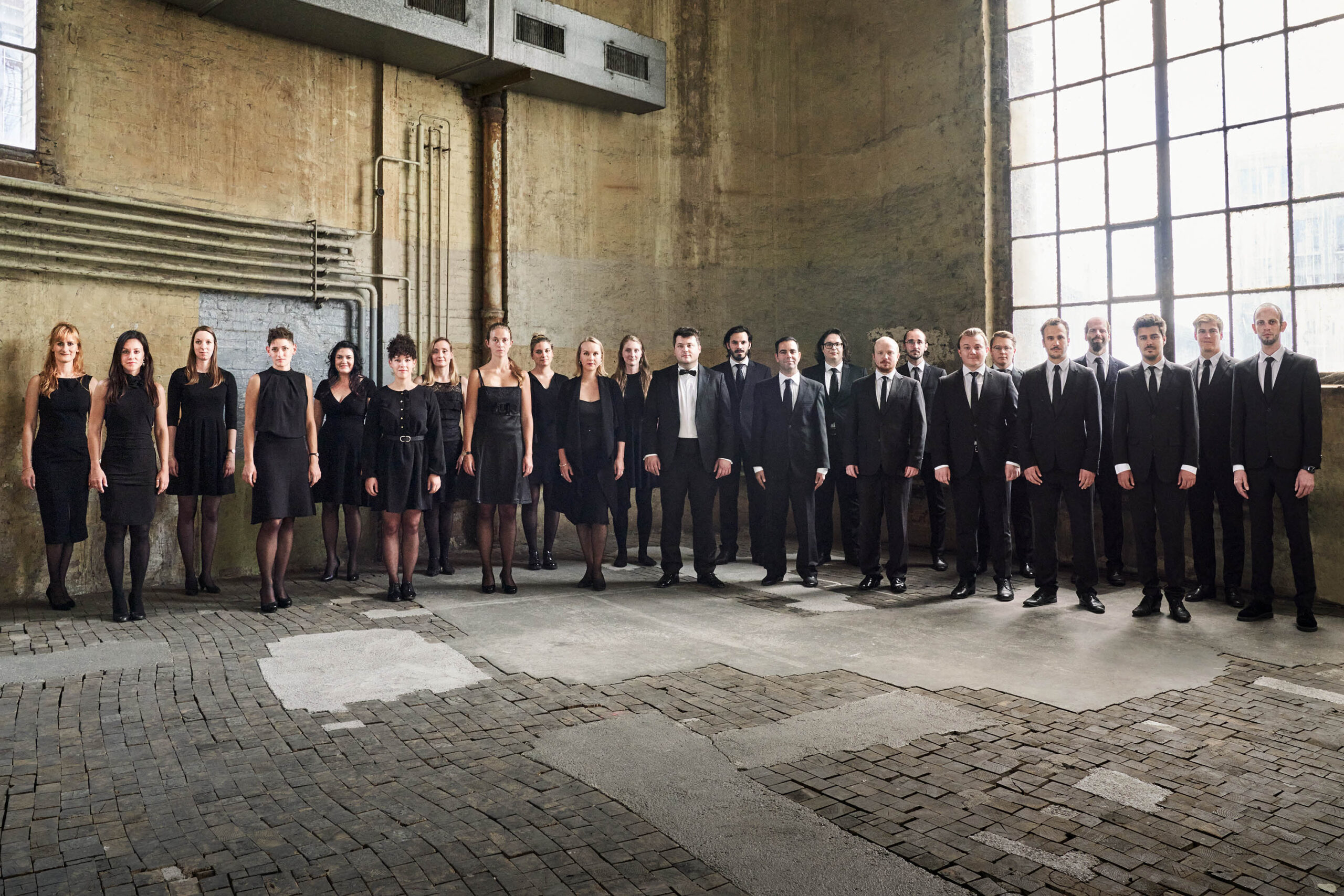The Zurich Chamber Singers
Bruckner Spectrum
The Zurich Chamber Singers‘ new album Bruckner Spectrum invites us to experience Anton Bruckner’s motets and works by Giovanni Pierluigi da Palestrina in a new way. The album spans a wide range of Bruckner’s Latin motets in combination with works by da Palestrina, as well as three world premieres of commissioned pieces by the Stuttgart composer Burkhard Kinzler. Da Palestrina’s commentarial motets invite us to look back at “the origin,“ while Kinzler’s “Bruckner Bridges“ ruminate about past works from our vantage point of the here and now.
Sie sehen gerade einen Platzhalterinhalt von YouTube. Um auf den eigentlichen Inhalt zuzugreifen, klicken Sie auf die Schaltfläche unten. Bitte beachten Sie, dass dabei Daten an Drittanbieter weitergegeben werden.
This album is a follow-up to the previous CD O Nata Lux. The Zurich Chamber Singers have fast risen in prominence and are today among Europe’s most innovative choirs. Their stylistic competence and confidence is demonstrated on their second album, Bruckner Spectrum, through their interpretations of acapella works from four different centuries.
1. According to critics, the Zurich Chamber Singers are among Europe’s top ten leading chamber choirs. Could you tell us a bit about the ensemble’s founding and your own development as conductor?
The desire to lead my own choir emerged while I was singing in various choirs throughout my youth. Having my own choir would allow me to study a repertoire in its entirety, to curate and create a specific sound, to realize my own visions for the works being performed. So I first began gathering experiences in non-professional choirs. This was an extremely important time for me, because working with different voices – be they lay singers or professional vocalists – takes an incredible amount of pedagogical skill that can’t simply be acquired overnight. It is important to have a time during which you can experiment without too much pressure, when you can learn what works and what does not, where you develop your sense of hearing and so on. I took all this very seriously from the beginning in an effort to get a clear idea of how a choir was supposed to sound, and how to get there. After I completed my piano studies, I took further training in choir and orchestra direction, and finally, got my Master’s degree in conductorship for orchestra in order to have a complete education as director.
I founded the Zurich Chamber Singers in 2015. I felt ready to realize my dream of leading my own professional ensemble. So I asked ten of my vocalist friends if they would like to work on a project with me,
and started organizing a few concerts. This all grew very quickly, and we now have a pool of thirty singers and work with a variety of orchestras and festivals, and we record for Berlin Classics as exclusive partners.
2. What would you say is the secret behind the ensemble’s success since its inception in 2015?
One important aspect is definitely that our concerts and CDs always have a connecting thread, and that our pieces can be heard in a new context. So far, we have had a world premiere or first release in each one of our programs. We work closely with contemporary composers, which helps us approach even the more traditional repertoire from new perspectives. In addition, it is very important to me that the ensemble presents itself in an up-to-date fashion and also expresses that in ist graphic designs and videos. But what really stands out and gets a lot of praise in critical reviews is our sound – we truly work diligently on vocalization, text, intonation. It is crucial that the vocal artists sing with clarity and precision. This gives our interpretation of works a very direct and immediate effect.
3. Where does this third album of the Zurich Chamber Singers fall within a dramaturgical logic?
On our new album, we collect Latin motets by Anton Bruckner and contrapose them with annotating works by da Palestrina as well as with a Kinzler world premiere. The pieces by Bruckner appear here in a dramaturgical sequence which is reminiscent of a musical prayer book or a journal. The motets by da Palestrina – who was an important influence on Bruckner – offer a look back into the past, while Burkhard Kinzler’s new pieces, which we recorded for this program, are squarely rooted in the here and now and look back from that vantage point. We shine light on the theological principles of Anton Bruckner’s faith, and with it, his musical psychology, from different angles, thus creating a very harmonious journey through Bruckner’s motets for our listeners to enjoy.
4. You have also started conducting musicians with instruments. Could you give us some insight into your most recent concerts and CD projects?
I have developed a close cooperation with the Vienna Morphing Orchestra, a really fantastic orchestra which I met in the spring of 2021. Back then, we performed and recorded, with the Florianer Sängerknaben, the Magnificat by American composer Julian Revie. We got along great right away and wanted to continue working together. In the fall of last year, we produced our album Pärt in collaboration with Roberto Alagna, Aleskandra Kursak, and Andreas Scholl. We will present the program in Paris this November. I am also excited that the Vienna Morphing Orchestra is coming to Winterthur next spring, where we will perform a very diverse repertoire spanning from Mozart to Caplet.
In the near future, the Zurich Chamber Singers will be working with the Zürcher Kammerorchester, the Württembergische Philharmonie Reutlingen, the Musikkollegium Winterthur and CHAARTS, as well as with artists like Caroline Shaw and Roberto Gonzales Monjas. Additionally, I am conducting the theater orchestra Biel Solothurn with a Beethoven program for the first time in December.
